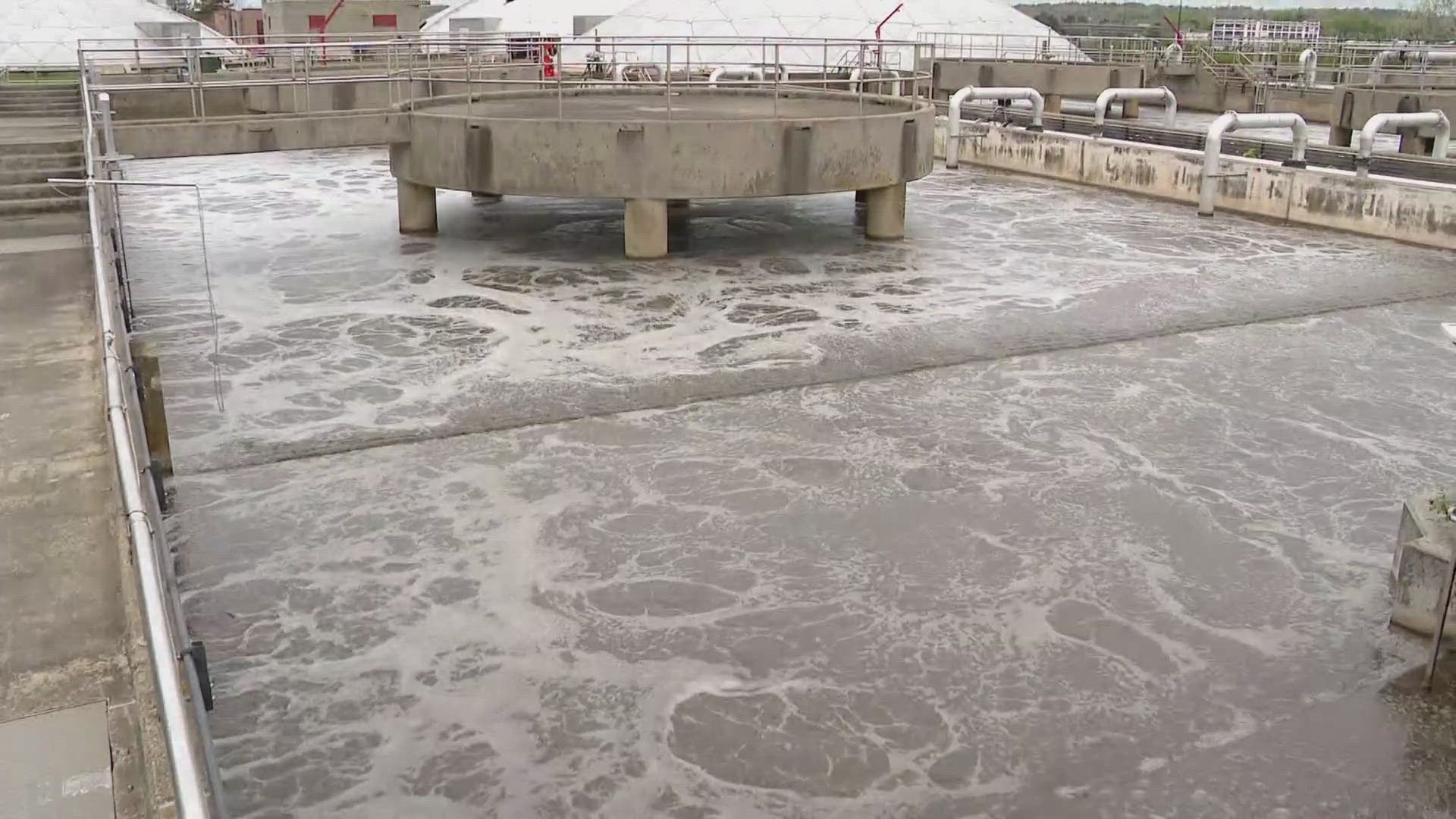PORTLAND, Maine — There are growing concerns about the state's ability to handle waste and the impact it could have on wastewater treatment facilities in just a few years. Tons of wastewater sludge, or biosolids, are shipped to a state-owned landfill every day. That sludge is laced with PFAS.
State regulators say if investments aren't made to manage it, the landfill could be at capacity by 2028. The Portland Water District's East End plant takes in 25,000 pounds of solid waste daily.
"What comes in has to go out, so when we have interruptions in the ability to manage biosolids, that is a huge challenge," Scott Firmin, director of Portland Wastewater Services with the Portland Water District, explained.
The utility has nearly 100,000 customers in the Greater Portland area and ships the byproduct of that waste, known as sludge or biosolids, to the Juniper Ridge landfill near Old Town.
Last summer, it was left scrambling after Casella Waste Systems said it could not safely accept municipal sludge at Juniper Ridge after shipments of construction debris needed to stabilize the site were banned.
"Ninety percent of the biosolids generated in Maine go to that landfill," Firmin said.
Lawmakers temporarily lifted the ban, but another crisis is looming. A recent Department of Environmental Protection report shows the landfill will reach capacity in four years if new solutions are not implemented. Firmin said the Portland Water District has met with other utilities about possibly building a regional biosolid drying facility.
"We can get that volume down to four trucks a week by putting in digestion and dryers," Firmin added.
Casella, meanwhile, is partnering with renewable gas company Viridi Energy. Earlier this year, the company acquired this bio-digester plant at Brunswick Landing. Casella will deliver about 85,000 tons of biosolids annually from a network of wastewater plants.
"They are going to turn this into renewable energy and natural gas and reduce that volume of material by about 90 percent, which then ends up back in the landfill," Casella spokesperson Jeff Weld explained.
When the facility comes online, possibly in 2026, it will generate enough renewable energy to reach 3,000 homes a year and supply electricity to the business park home to more than 150 businesses.
Other recommendations from state regulators include expanding Juniper Ridge's capacity—solutions that would require significant investments and could take years to become a reality.
For more information about PFAS from the DEP, click here.

